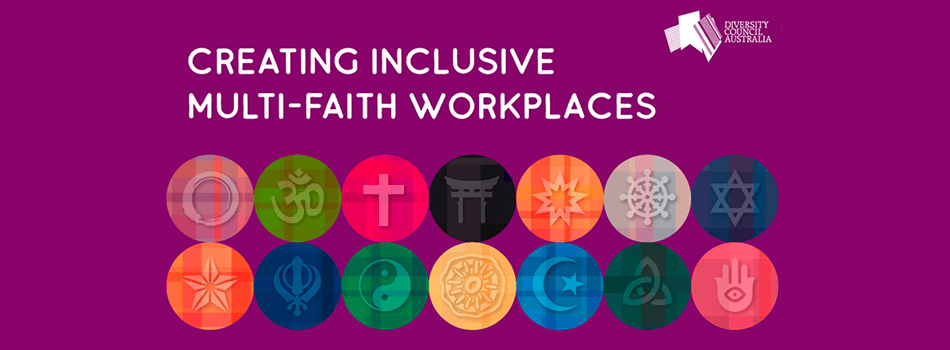Workforce
Diversity Council resource created to explore multi-faith workplaces

Freya Lucas
Aug 14, 2019
Save
The Australian early childhood education and care (ECEC) landscape is diverse, with families with a variety of cultural and faith based backgrounds accessing education and care. Likewise, the ECEC workforce is a diverse community, with educators from different backgrounds working alongside one another.
As such, a new resource from the Diversity Council of Australia (DCA), known as Creating Inclusive Multi-Faith Workplaces, has been developed to support workplaces to move away from simply ‘accommodating’ the needs of their multi-faith employees, towards making workplaces inclusive for everyone in Australia’s increasingly religiously diverse workplaces.Designed to provide guidance to Australian workplaces about how to deal with a range of common faith-related queries, and also to provide workplaces with principles to help balance issues where conflicting rights might intersect, DCA’s CEO Lisa Annese said that workplaces were “crying out” for a resource like this.
The basis for the guide was developed ten years ago, Ms Annese noted, “but a lot has changed in that time”.
The variety of religious beliefs in the country has increased, she said, whilst at the same time Australia has “more people of no faith than ever before”.
In consulting with a variety of workplaces to develop and shape the resource, Ms Annese observed that whilst organisations had “increasingly sophisticated diversity and inclusion policies” there was a lack of clarity about the legal landscape “and this was adversely impacting on their capacity to know how to best legally accommodate employee faith-related needs and requests.”
The resource is not simply about meeting legal obligations, however. Ms Annese said the broader aspirations of the resource were to move toward true inclusion. “We know how powerful a tool inclusion is for workplaces. Our research shows it has benefits for businesses and individuals.”
“We wanted to set a higher bar – and elevate the conversations that we have each day so these respect and include all.”
The resource outlines a framework for situations where staff may have particular religious needs which conflict with work requirements.
“A common question we receive at DCA is how to handle situations where someone’s religious beliefs challenge another person’s belief or identity, especially if this has an impact on the needs of the business.
“There are no simple answers, but DCA has developed a framework to help navigate some of these situations, based on the principle of inclusion – ensuring that all employees are respected, connected, and able to contribute and progress,” Ms Annese said.
Recognising public commentary about religious rights and the workplace, Ms Annese said “Rather than arguing about whether or not something is legal, let’s think about whether it’s respectful and inclusive. And if it’s not, then it’s probably not appropriate in a workplace, even if you think it comes from a place of love.”
Don’t miss a thing
Related Articles



















